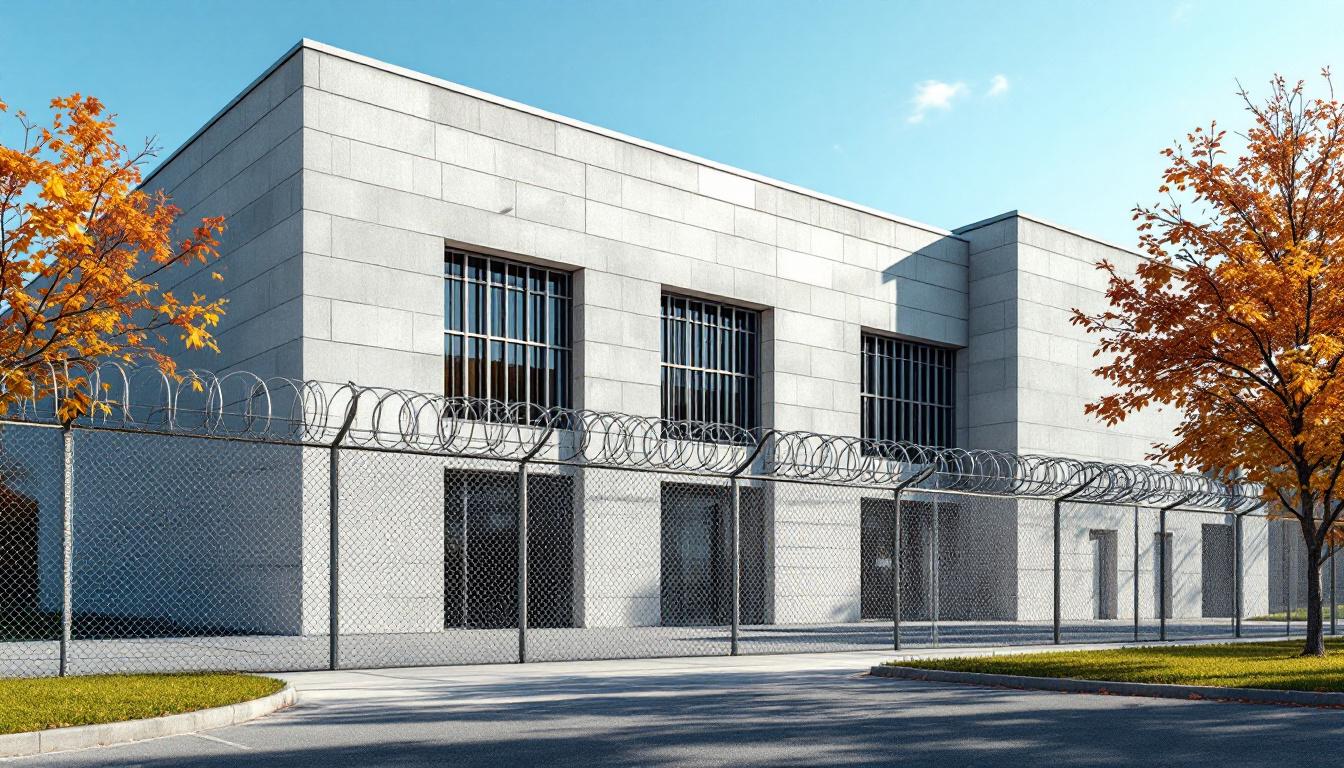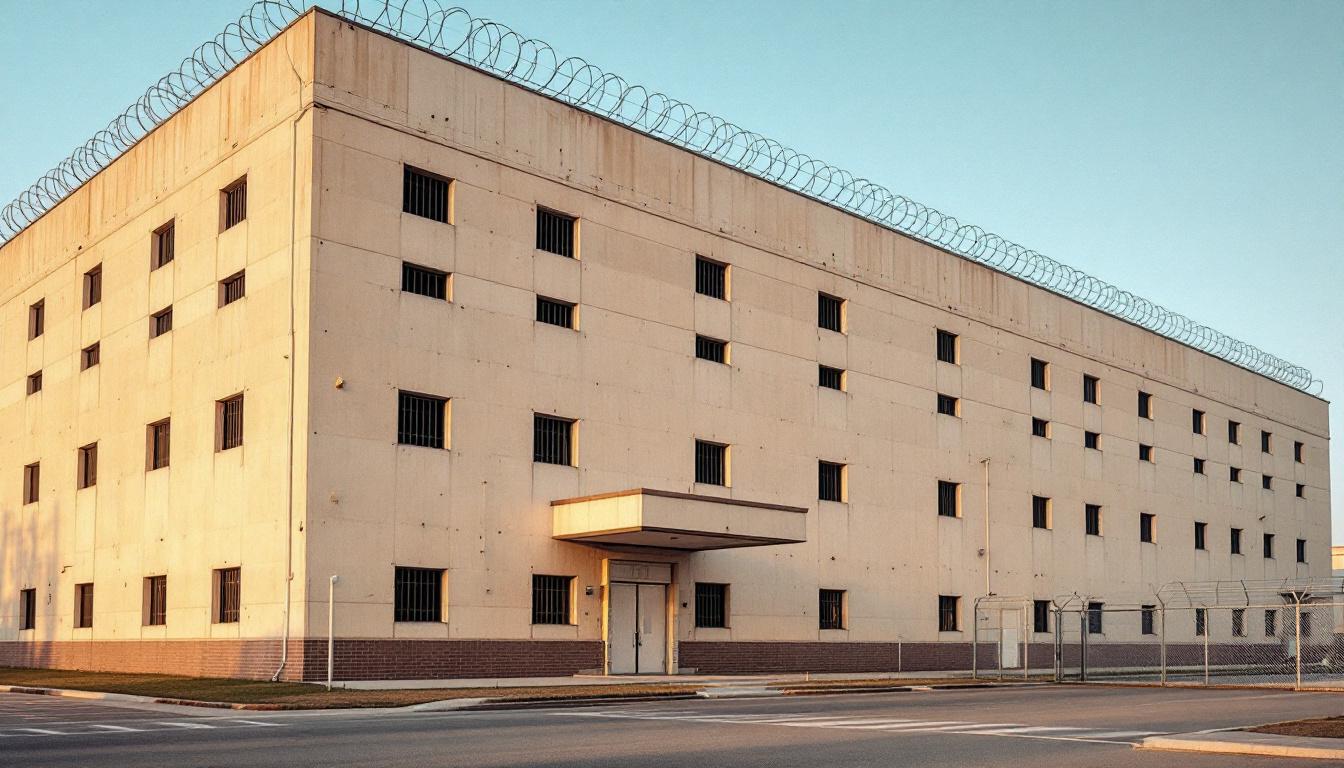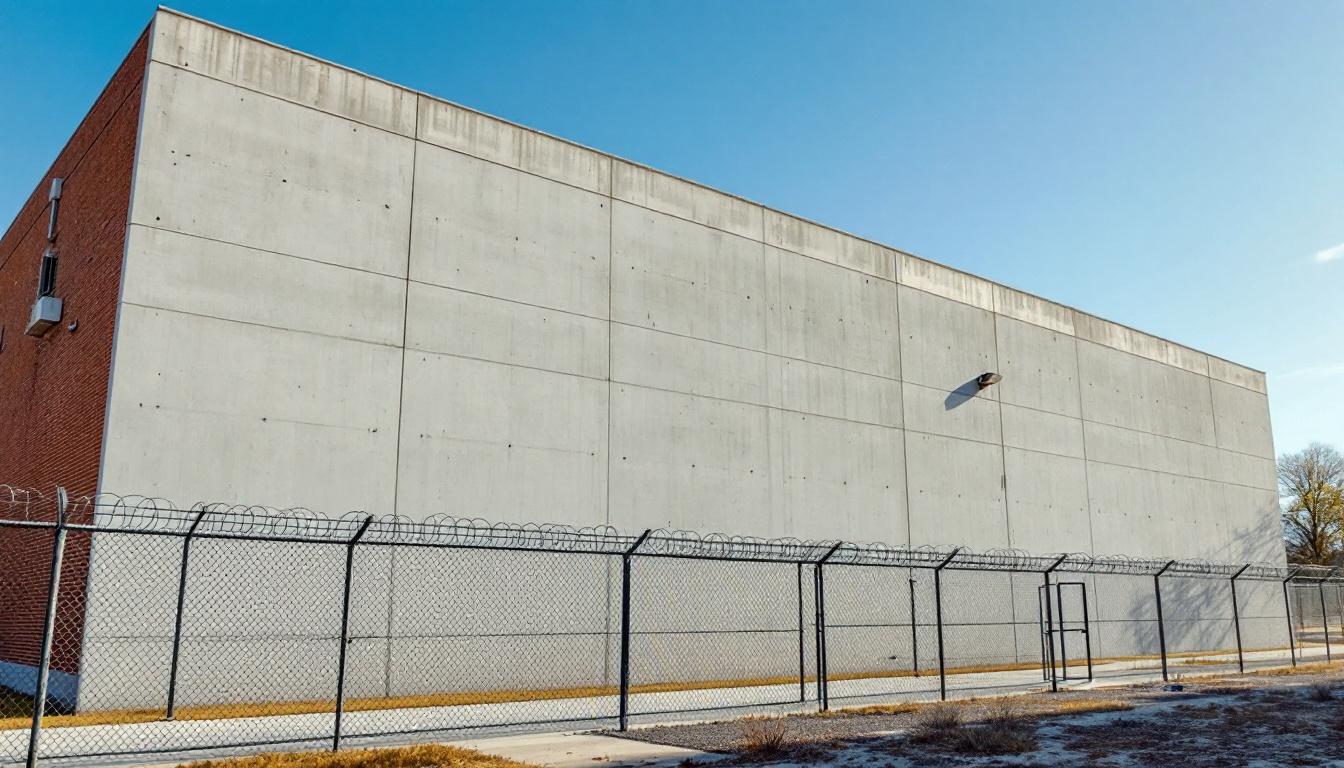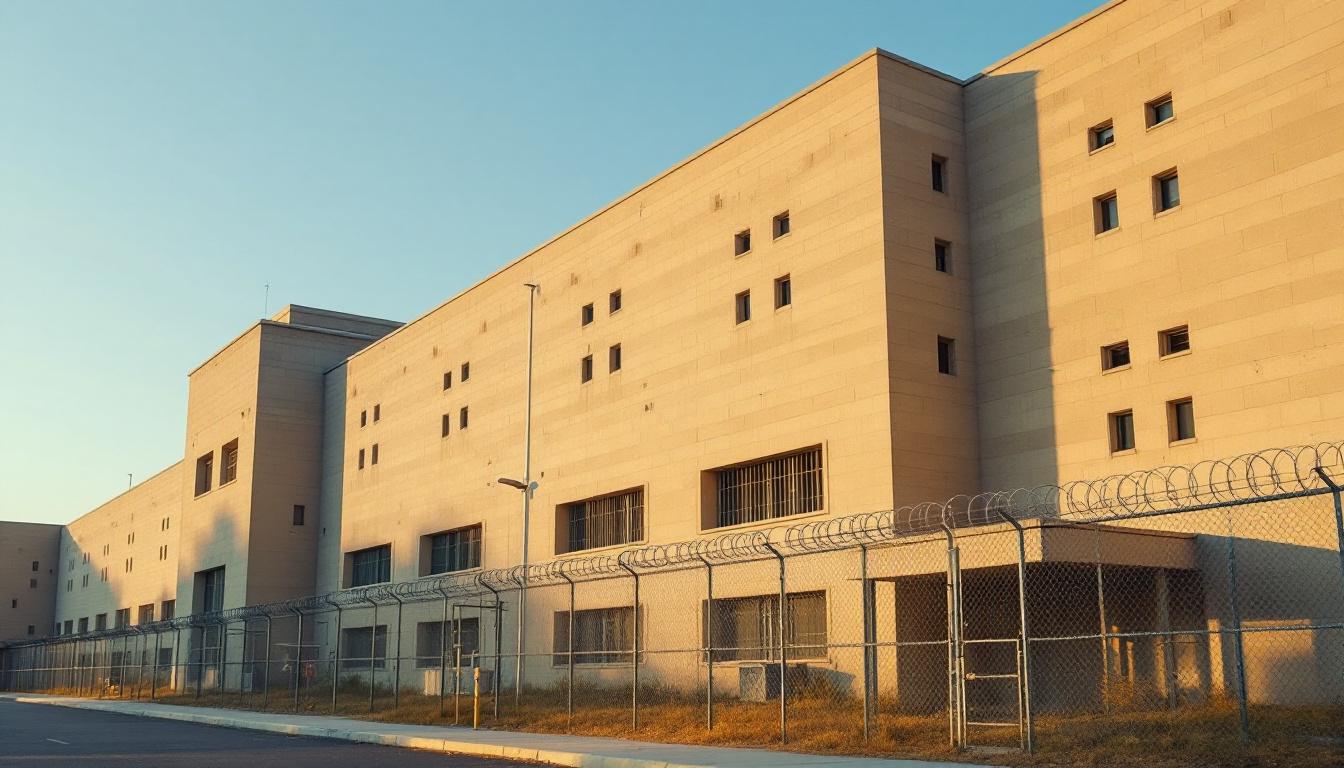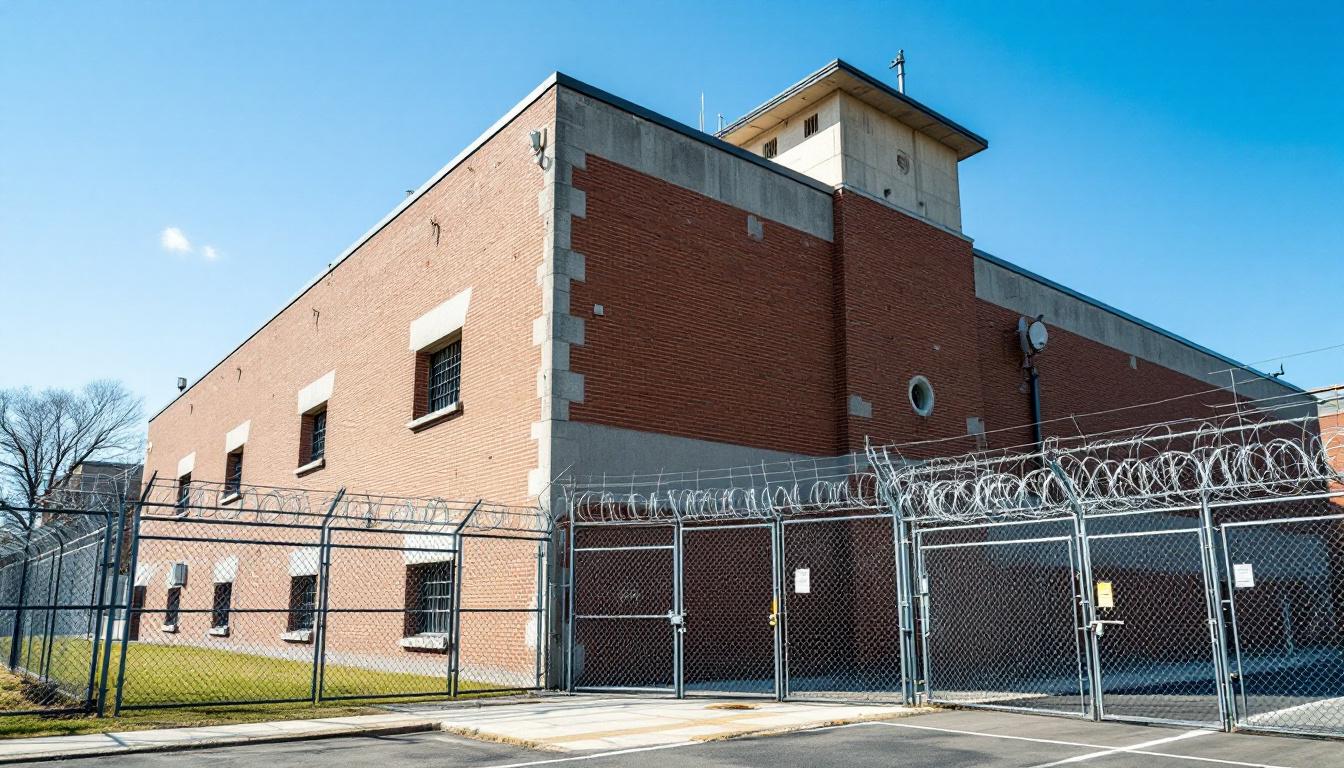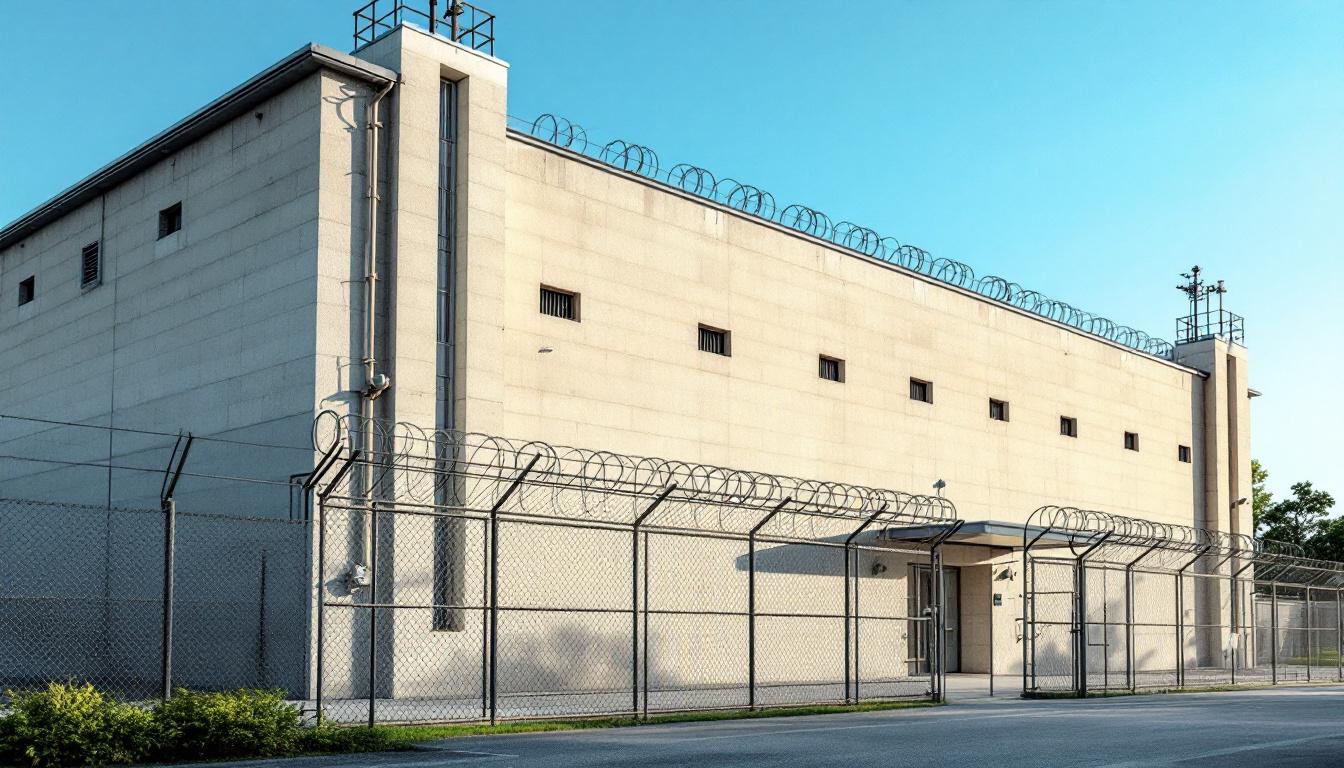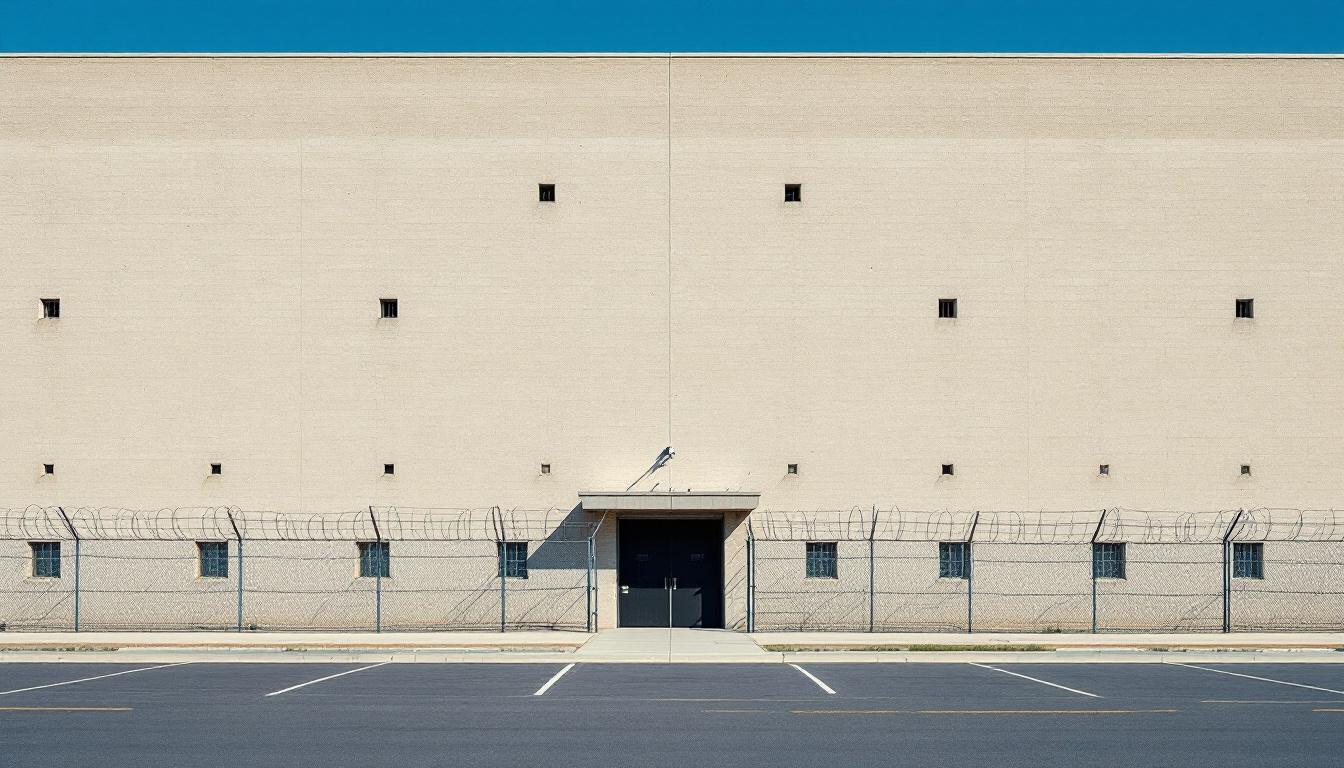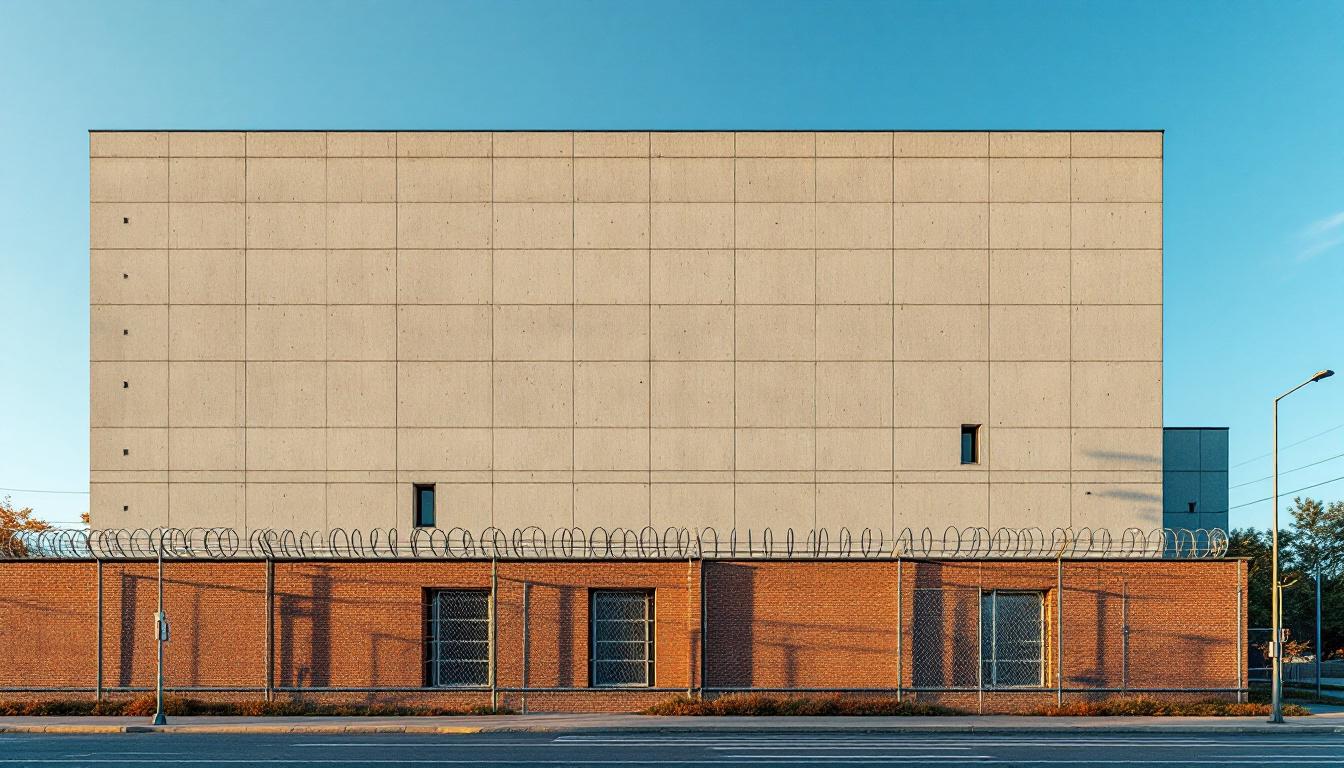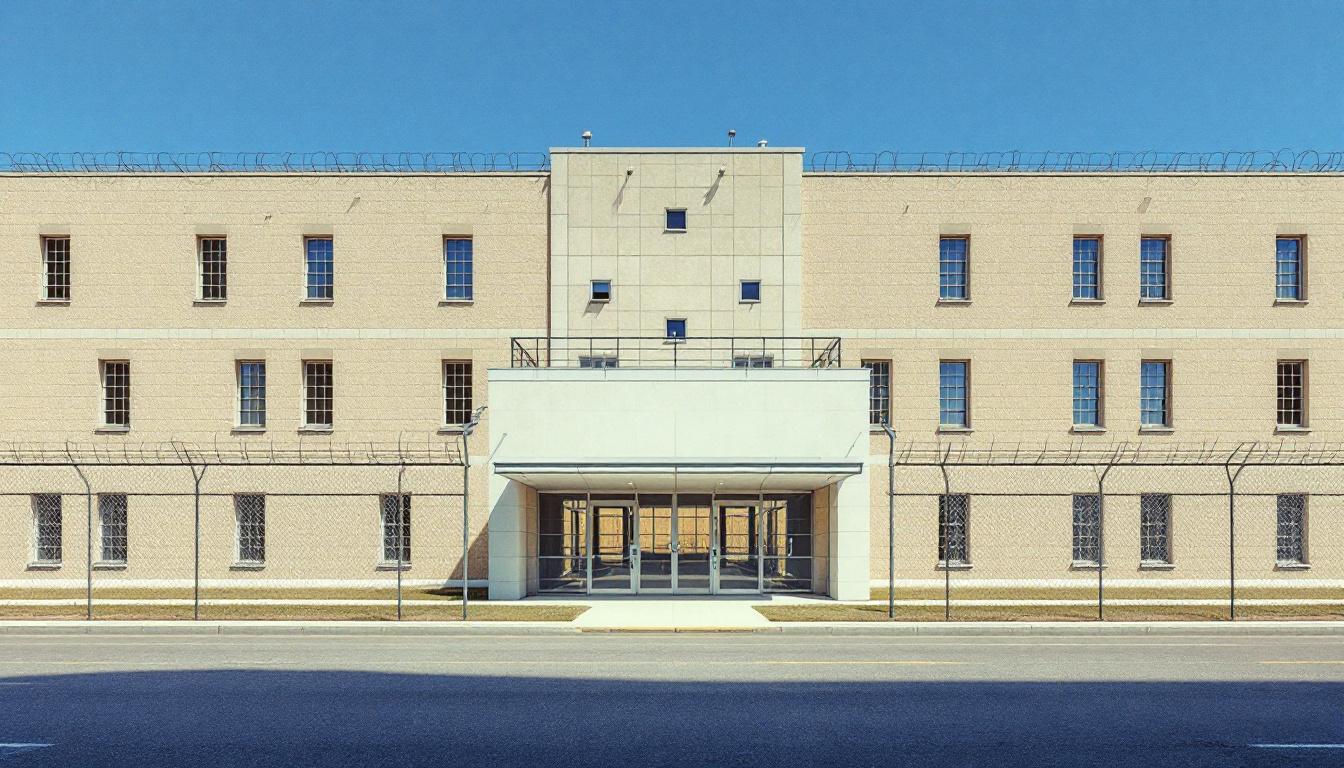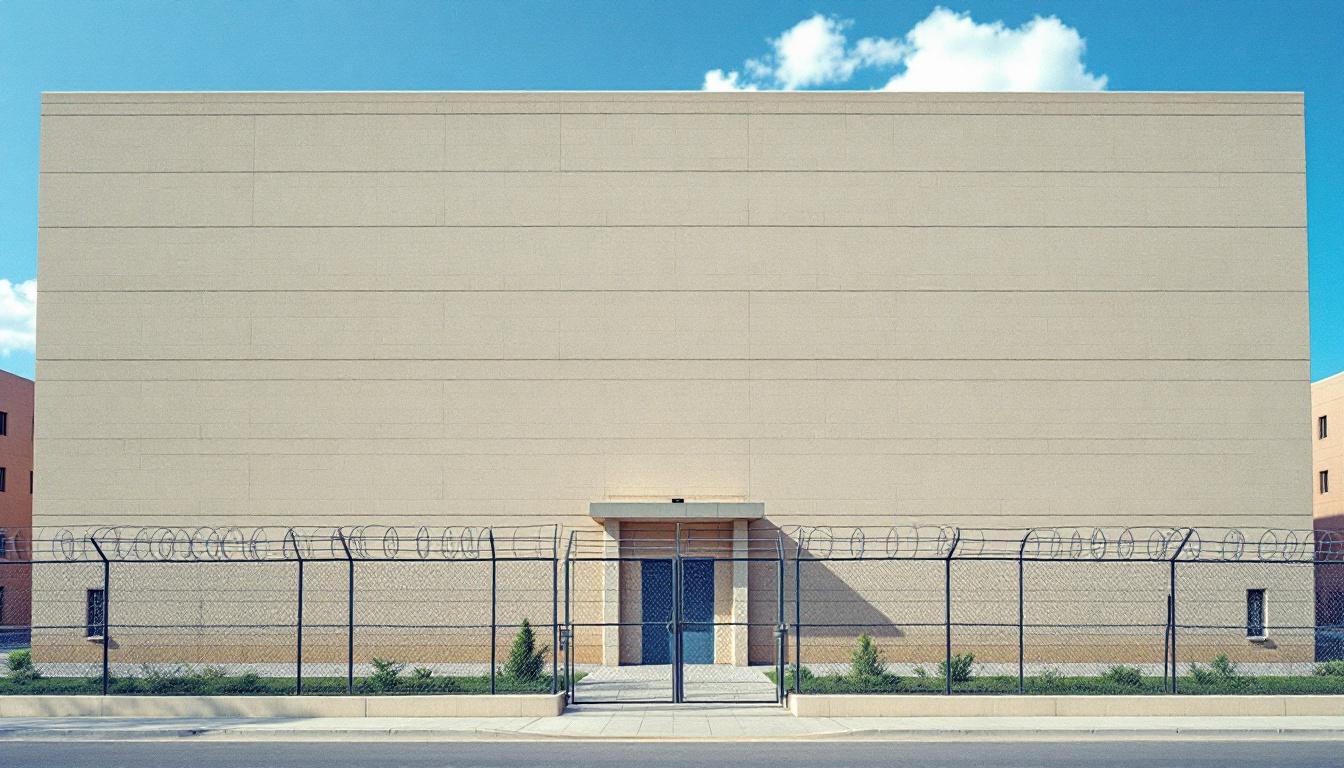
Quick Navigation
How to contact an inmate at Jefferson Correctional Institute
This comprehensive guide will walk you through how to connect with an inmate at Jefferson Correctional Institute. Follow the steps below to find an inmate and send letters and photos:
- Search for the inmate using our search tool below
- Create your account or log in to Penmate
- Write your message (up to 6,000 characters)
- Send instantly - inmates receive printed copies daily
Find an Inmate
Search for an inmate to start communicating today
Tip: You can search by first name, last name, or inmate ID number
To contact a person at Jefferson Correctional Institute start by searching for the person on the official facility website. Perform a search by following these steps:
- Step 1: Enter their first name and last name into the search form and click "Search"
- Step 2: Locate their inmate record
- Step 3: Write down their Inmate ID and any housing information provided
Important! Be sure to enter the person's full name. Nicknames should not be used.
How to Send Messages to Inmates

You can use your phone or computer to send emails, letters, and photos to an inmate. Messages are sent electronically to inmate tablets or kiosks at the facility. If you would like to send a message, start by searching for an inmate at Jefferson Correctional Institute.
Sending Photos and Postcards

A great way to send love and support to a loved one at Jefferson Correctional Institute is to send photos and postcards. It only takes a few minutes to send photos from your phone and it makes a huge difference. You can also mail postcards with words of support and inspiration, or design your own postcard for special moments like birthdays and holidays.
Important! Be sure not to send any explicit photos or they may not be approved by the facility. You can also use a photo printing app like Penmate to make sure your photos are printed at the correct size (4x6 or 3x5) and are mailed according to the rules and regulations of Jefferson Correctional Institute.
Frequently asked questions about Jefferson Correctional Institute
-
How long does it take to deliver a message?
If you're sending an email message your letter is usually delivered within 24-48 hours. For messages sent via mail you should expect delivery within 3-7 days. All messages will need be approved by Jefferson Correctional Institute.
-
How much does it cost to send a message to Jefferson Correctional Institute?
You can send a message free using your phone or mail a message via USPS for the price of a $0.60 stamp and envelope. You can also purchase credits or e-stamps from services starting at $1.99.
-
What services can I use to contact an inmate at Jefferson Correctional Institute?
Penmate
You can use Penmate to send letters and photos to an inmate from your phone. It's an easy way to stay in touch during your loved one's incarceration. Use the inmate locator to find an inmate's location and contact information, then you can send messages within a few minutes.
Securus messaging
Securus may be another option for communicating with an inmate at Jefferson Correctional Institute. You can create a friends and family account and purchase credits to send messages. All messages will be reviewed and must be approved by the facility.
JPay
Some county jails and state prisons may support sending messages with JPay. You must register an account with the system, find your loved one, and purchase stamps to send messages. For some locations you can also attach photos.
Smart Jail Mail
You may also check if Smart Jail Mail is available at Jefferson Correctional Institute. Smart Jail Mail is operated by Smart Communications and has contracted with some state and county jails. After purchasing credits, your messages and photos are sent to the facility, printed out, and then handed out to your loved one.
-
What is the mailing address of Jefferson Correctional Institute?
Mailing address:
Jefferson Correctional Institute
1050 Big Joe Rd
Monticello, FL 32344
Phone: (850) 342-0500 -
What are the visiting hours at Jefferson Correctional Institute?
Visiting hours at Jefferson Correctional Institute vary by housing unit and security level. Generally, visits are scheduled on weekends and holidays, with some facilities offering weekday visits. Contact the facility directly at (850) 342-0500 or check their website for the current visiting schedule. Visits typically last 30-60 minutes and must be scheduled in advance.
-
What items are prohibited when sending mail to Jefferson Correctional Institute?
Prohibited items typically include: cash, personal checks, stamps, stickers, glitter, glue, tape, staples, paperclips, polaroid photos, musical or blank greeting cards, hardcover books, magazines with staples, and any items containing metal or electronics. Only send letters on plain white paper with blue or black ink. Photos must be printed on regular photo paper (no Polaroids). Always check with Jefferson Correctional Institute for their specific mail policies.
-
How do I send money to an inmate at Jefferson Correctional Institute?
You can send money to an inmate at Jefferson Correctional Institute through several methods: 1) Online using JPay, Access Corrections, or the facility's approved vendor, 2) Money orders mailed directly to the facility with the inmate's name and ID number, 3) Kiosks located in the facility lobby, or 4) Over the phone using a credit or debit card. Fees vary by method, typically ranging from $2.95 to $11.95 per transaction.
-
Can I schedule a video visit with an inmate at Jefferson Correctional Institute?
Many facilities now offer video visitation as an alternative to in-person visits. At Jefferson Correctional Institute, video visits may be available through services like Penmate, Securus Video Connect, GTL, or ICSolutions. Video visits typically cost $10-20 for 20-30 minutes and must be scheduled in advance. You'll need a computer or smartphone with a camera and reliable internet connection. Contact the facility for their specific video visitation policies and approved vendors.
-
What identification do I need to visit an inmate at Jefferson Correctional Institute?
All visitors must present valid government-issued photo identification such as a driver's license, state ID, passport, or military ID. Minors must be accompanied by a parent or legal guardian who can provide the minor's birth certificate. Some facilities require visitors to be on the inmate's approved visitation list, which may require a background check. Contact Jefferson Correctional Institute for specific ID requirements and visitor approval procedures.
-
How can I find out an inmate's release date?
To find an inmate's release date at Jefferson Correctional Institute, you can: 1) Use the online inmate search tool if available, 2) Call the facility's records department, 3) Contact the inmate's case manager or counselor, or 4) Have the inmate provide this information during a call or visit. For privacy reasons, some facilities only release this information to immediate family members.
Facility Overview
Contact Information
Jefferson Correctional Institute1050 Big Joe Rd
Monticello, FL 32344
Phone: (850) 342-0500
Official Website

About Jefferson Correctional Institute
Within Tampa's urban landscape, Jefferson Corrections Inst, FL operates as a significant component of Florida's correctional infrastructure, serving the broader Tampa Bay metropolitan area with a dual commitment to public safety and offender rehabilitation. The facility's establishment reflects the region's ongoing efforts to address correctional needs while incorporating evolving approaches to inmate management and community reintegration.
This FL correctional facility typically emphasizes a comprehensive approach to residents services that may include educational programming, vocational training opportunities, and behavioral intervention initiatives. The institution generally maintains various support systems designed to address the diverse needs of its population, often incorporating substance abuse counseling, mental health services, and pre-release preparation programs. These services typically align with Florida's broader correctional philosophy of balancing security requirements with rehabilitation-focused interventions.
Jefferson Corrections Inst, FL generally operates within the framework of modern correctional practices, often featuring structured daily routines that may include work assignments, educational activities, and therapeutic programming. The facility's location in Tampa provides potential advantages for family visitation and community connections, while its role within the state system typically involves collaboration with various social service agencies and community organizations to support successful reentry outcomes for residents preparing to return to society.
Programs & Services
Comprehensive rehabilitation initiatives at Jefferson Corrections Inst, FL typically emphasize a multifaceted approach that addresses the diverse needs of residents through interconnected programming. The facility's philosophy centers on providing structured pathways for personal development, recognizing that sustainable reintegration requires addressing educational deficits, vocational skills gaps, and underlying behavioral challenges simultaneously. This holistic framework may deliver services designed to build foundational competencies while fostering the critical thinking and problem-solving abilities essential for successful community reentry.
Educational initiatives often encompass basic literacy and numeracy instruction alongside more advanced academic programming, enabling residents to pursue high school equivalency credentials and develop essential workplace communication skills. Vocational training components typically include hands-on instruction in electrical work and facility maintenance, providing residents with marketable technical competencies that align with regional employment opportunities. These educational and vocational elements may be structured to accommodate varying skill levels, ensuring that participants can progress at appropriate paces while building confidence through measurable achievements.
In addition to these foundational elements, therapeutic and support initiatives typically address the complex behavioral and social factors that contribute to recidivism patterns. Substance abuse treatment programming may utilize evidence-based methodologies to help residents develop coping strategies and understand addiction's underlying mechanisms. Conflict resolution training often focuses on developing interpersonal communication skills and emotional regulation techniques, while wellness programs typically promote physical health and stress management. Work release opportunities may provide supervised community employment experiences, allowing residents to apply newly acquired skills while maintaining structured support systems during their transition process.
Daily Life & Visitation

The sound of morning count currently marks the beginning of each structured day, as residents follow a carefully organized schedule that continues to provide predictability and routine throughout their incarceration. Wake-up typically occurs in the early morning hours, followed by personal hygiene time and preparation for the day ahead. Meal times generally anchor the daily schedule, with breakfast, lunch, and dinner served at consistent intervals in the facility's dining areas. Between meals, residents typically participate in work assignments, educational programs, or recreational activities, all designed to deliver structure and purpose to their daily experience.
Living accommodations at the facility generally consist of housing units where residents are assigned based on various factors including security classification and program participation. Residents typically share living spaces and are responsible for maintaining cleanliness and organization within their assigned areas. Personal property is usually limited to approved items, and residents may access commissary services to purchase additional necessities and approved comfort items. The housing environment often includes common areas where residents can interact during designated free time periods.
In addition to this structured routine, the facility typically offers various recreational opportunities that may include outdoor exercise time, indoor fitness activities, and organized sports when weather and security conditions permit. Educational and vocational programming often delivers valuable skills training and personal development opportunities throughout the week. Family connections continue to be supported through scheduled visitation periods and telephone privileges, allowing residents to maintain important relationships with loved ones. Despite this structured environment, residents generally have opportunities to participate in religious services, library access, and other programs that contribute to personal growth and rehabilitation efforts during their time at the facility.
Ready to Connect?
Start communicating with your loved one today
Search for an Inmate
